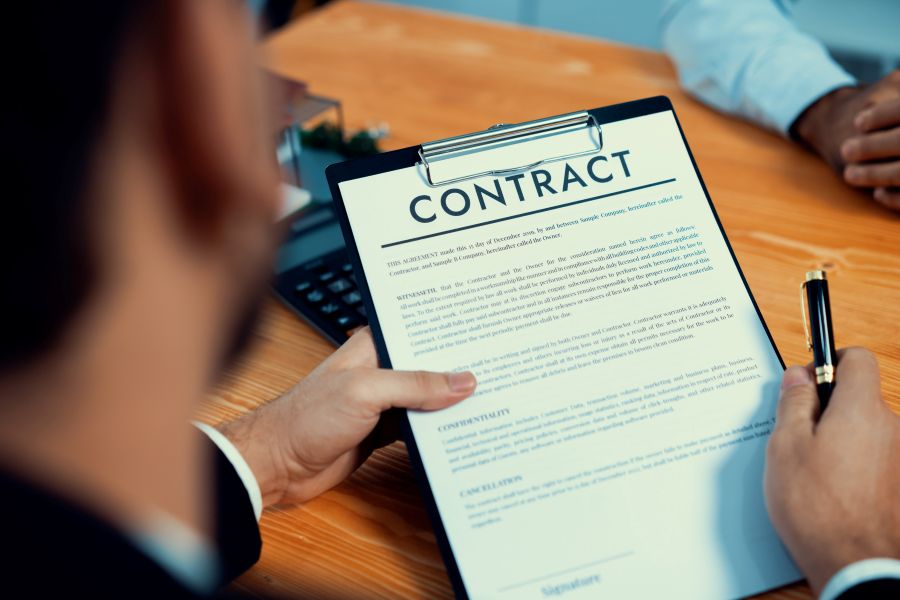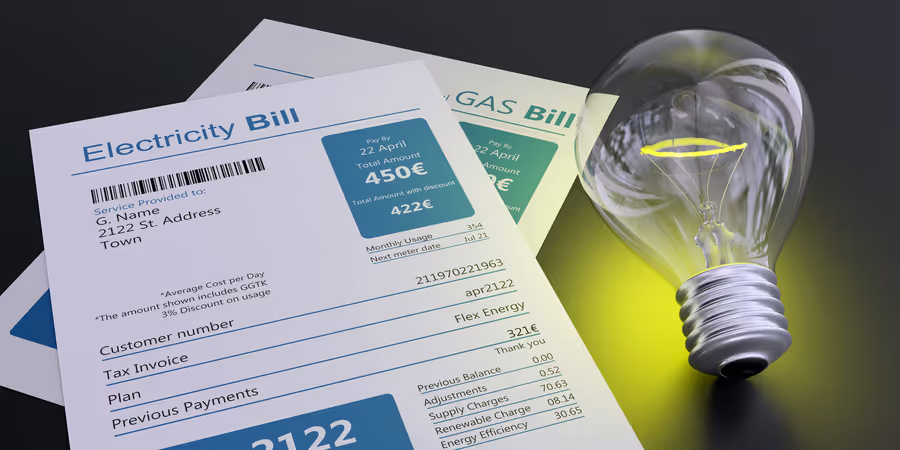If you have ever looked at a quote from a business, an invoice, or even a contract in the UK, you might have spotted the phrase “exclusive of VAT.” At first glance, it looks straightforward: VAT isn’t included in the price. Simple enough, right? But the real ‘exclusive of VAT’ meaning goes deeper than just the tax.
It can affect what you actually pay, how you plan your budget, and even what’s written into a legal contract. Getting your head around this little phrase can save you from nasty surprises, arguments over bills, or miscalculations in your accounts.
In this guide, we’ll break down what exclusive of VAT really means in plain English, why so many businesses use it, and how it plays out in real-life situations.
A quick refresher on VAT
Before we deep dive into what ‘exclusive of VAT’ means, let’s make sure VAT itself is clear. VAT is a type of tax applied to most goods and services in the UK.
The standard VAT rate is 20%, though some items are charged at the reduced rate of 5% (such as household energy). There’s also a third rate called zero rated VAT, which applies to things like most foods and children’s clothing.
Whenever you pay for a product or a service, VAT is usually added to the price. However, whether VAT is included in the initial figure or added separately depends on how the price is presented. That is where the distinction between exclusive of VAT and inclusive of VAT becomes important.
{{st-expense-guide}}
What does ‘exclusive of VAT’ actually mean?
When a price is exclusive of VAT, it means VAT has not been added yet. The amount shown is often called the base price, and the correct VAT rate will be calculated on top of it.
Understanding how this differs
Quote that’s exclusive of VAT
A graphic designer quotes £1,000 exclusive of VAT. If the standard VAT rate of 20% applies, the total cost will be £1,200. The £1,000 is the base cost, and the £200 is VAT.
Quote that’s inclusive of VAT
If the designer says the total price is £1,000 inclusive of VAT, the base price is only around £833, and £167 of VAT is already contained within the total.
This difference shows why understanding the exclusive of VAT meaning is so important. It affects how you calculate costs, whether you can reclaim VAT, and how you compare different suppliers.
Other examples of this:
It helps to see the exclusive of VAT in everyday situations.
Freelance services: A consultant quotes £2,500 exclusive of VAT. A VAT-registered business pays £3,000 but can reclaim the £500 VAT. A non-registered business pays the full £3,000 without a reclaim.
Construction projects: A builder quotes £15,000 exclusive of VAT. With 20 percent VAT, the final bill is £18,000. Quoting exclusive of VAT prevents disputes over whether tax should be added.
Retail and supplies: A supplier sells office chairs for £75 each, exclusive of VAT. An order of 20 chairs is £1,500, plus £300 VAT, bringing the total to £1,800.
In each case, the exclusive of VAT figure separates the true cost of the goods or services from the tax owed to HMRC.
Why businesses quote like this
If you’ve ever wondered why so many UK businesses choose to show their prices exclusive of VAT, you’re not alone. On the face of it, adding VAT afterwards can seem like an unnecessary complication.
But once you understand the exclusive of VAT meaning, the logic becomes clear. Businesses have a handful of very practical reasons for doing it this way:
1. It makes sense for business customers
A lot of trade happens between VAT-registered companies. If your client is VAT-registered, they can usually reclaim the VAT you charge. What matters most to them is the base cost, not the tax.
2. It keeps one consistent price
Imagine having to publish two sets of prices, one for VAT-registered clients and another for everyone else. It would be a nightmare to manage. Quoting exclusive of VAT means there’s a single base figure, and VAT is simply added when it applies.
3. It avoids confusion over what’s tax and what’s profit
When VAT is rolled into the number, it’s easy for customers to assume that the whole amount goes to the seller. Quoting exclusive of VAT makes it crystal clear which part of the bill is the actual cost of the service or product, and which part is tax.
4. It satisfies HMRC’s requirements
UK law says businesses have to be clear about whether VAT is included. By stating prices exclusive of VAT, a business shows it is following the rules, and that protects them if there’s ever a dispute.
5. It works better in international trade
This approach also makes international transactions simpler. For customers outside the UK, VAT might not apply at all. Using an exclusive of VAT price gives a clear base figure that works whether VAT is added or not.
So if you’re looking for the meaning of exclusive of VAT, you should know that it isn’t just a technical phrase. It’s a practical way of setting out prices that helps businesses stay compliant, keep things simple, and communicate clearly with their customers.
How it affects customers
From a customer’s point of view, whether something is quoted exclusive or inclusive of VAT can make a big difference. If you’re a private individual or a business that isn’t VAT-registered, exclusive pricing means you’ll end up paying more than the number you first saw. That can be frustrating if you weren’t expecting it.
Picture this: you’re hiring a tradesperson who quotes you £2,000 for a job. You think that’s your full bill. But when the invoice arrives, it’s £2,400 because the original quote was exclusive of VAT. If you didn’t realise that upfront, you might feel misled.
On the flip side, if you are VAT-registered, exclusive of VAT pricing is actually more useful. You’ll be able to claim the VAT back, so what you really care about is the net amount before tax. In this context, exclusive of VAT means transparency, you see the true business cost without tax included.
{{crunch-free}}
Legal and contractual implications
Exclusive of VAT has legal significance. If a contract states a fee is exclusive of VAT, the VAT must be added on top of the agreed figure. A supplier who forgets to add VAT could lose out financially, while a client who refuses to pay VAT might be breaching the contract.
HMRC also requires that VAT invoices clearly show the price excluding VAT, the VAT rate, and the VAT amount. Using the ‘exclusive of VAT’ language helps businesses meet these requirements. Courts usually interpret “exclusive of VAT” as a firm indication that VAT should be charged separately.
This shows why understanding the phrase is important not just for finance but also for legal protection.
Common misunderstandings
Despite being common, the exclusive of VAT meaning is sometimes misunderstood. People often assume the quoted price is the final amount, or they confuse exclusive of VAT with inclusive of VAT. Others forget that some goods and services are exempt or zero-rated, and mistakenly expect VAT to be added.
These misunderstandings can cause friction between businesses and customers. The safest approach is always to clarify whether a figure is inclusive or exclusive of VAT before agreeing to a price.
Exclusive of VAT in international transactions
The concept of quoting exclusive of VAT also matters when dealing with customers outside the UK. VAT rules vary by country, so the tax treatment depends on where the buyer is based:
- EU businesses (post-Brexit): If the buyer provides a valid VAT number, UK sellers usually do not charge VAT.
- Exports outside the UK: Many are zero-rated for VAT purposes, meaning VAT isn’t added at all.
By quoting prices exclusive of VAT, businesses provide a clear base figure that works regardless of the buyer’s location or whether VAT is applied, preventing confusion and ensuring international customers know exactly what they’re paying for goods or services, separate from tax.
Making things easier
For business owners and freelancers, clearly stating whether prices are exclusive of VAT saves time, confusion, and potential disputes.
You can make things easier by:
- Specifying whether prices are exclusive or inclusive on quotes, invoices, and contracts.
- Breaking down the VAT amount so clients know exactly what they’re paying.
- Adjusting quotations for non-VAT-registered clients so they understand the total cost.
Being transparent in this way builds trust and prevents headaches later.
Key points to remember
- Prices exclusive of VAT do not include tax; VAT is added on top. You might hear this referred to as net vs gross pricing.
- VAT-registered businesses can reclaim VAT, so the base price reflects the true cost, which is a handy benefit of being VAT-registered.
- Non-registered businesses pay the full amount, including VAT.
- Confusing exclusive and inclusive pricing is a common mistake.
- Even small details like this can have a big impact on budgeting and legal compliance.
Why knowing the exclusive of VAT meaning matters
In simple terms, exclusive of VAT means the price you see is just the starting point, with VAT added on top. How it affects you depends on whether you’re VAT-registered: businesses that can reclaim VAT will focus on the base price, while non-registered customers pay the full total.
Overlooking this detail can lead to budgeting errors, unexpected costs, or disputes with suppliers. By paying attention, asking the right questions, and making sure VAT treatment is clear, you can avoid confusion and frustration. Understanding the meaning of ‘exclusive of VAT’ is a small step that can make a big difference for your business finances.

.svg)



.webp)















